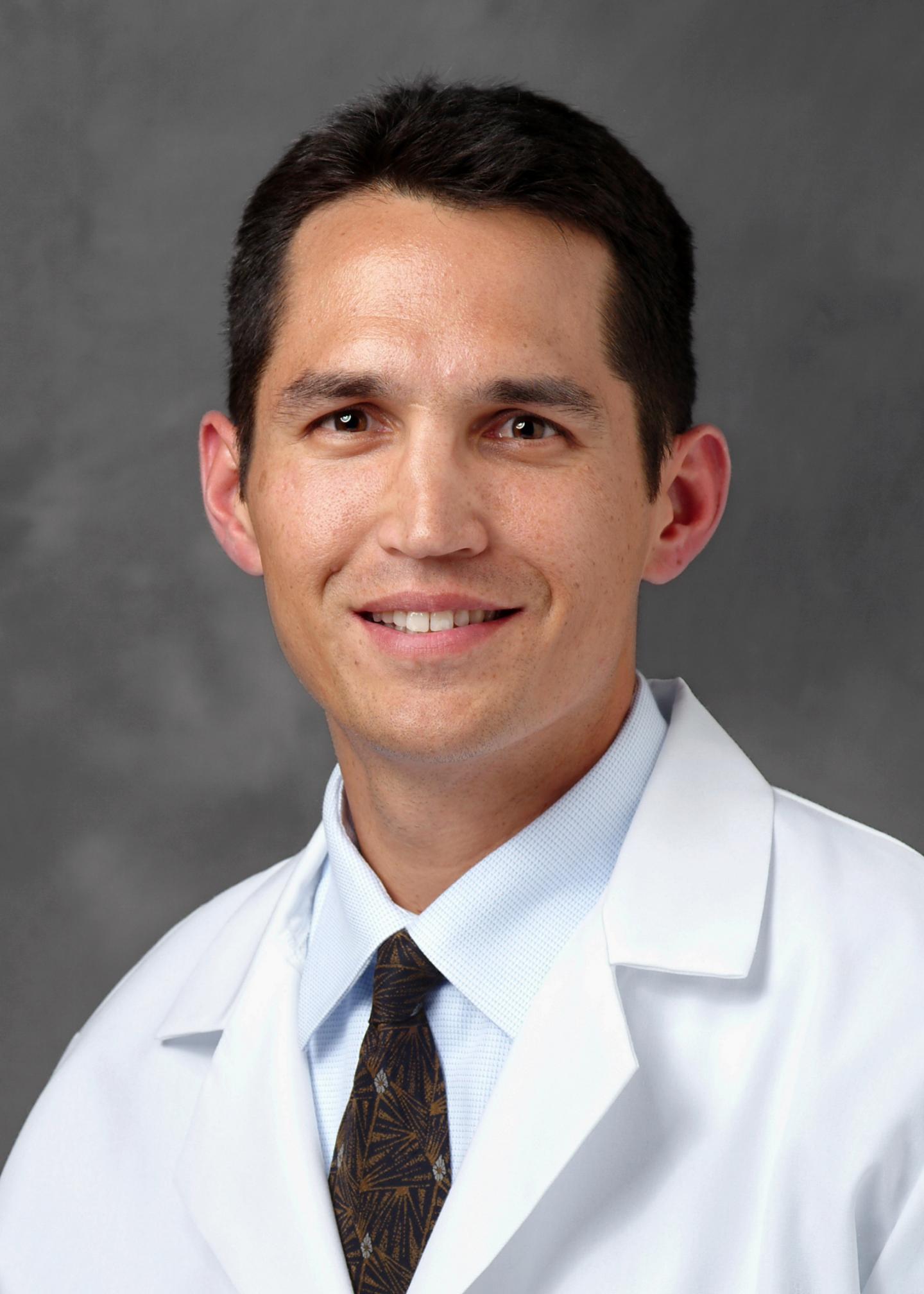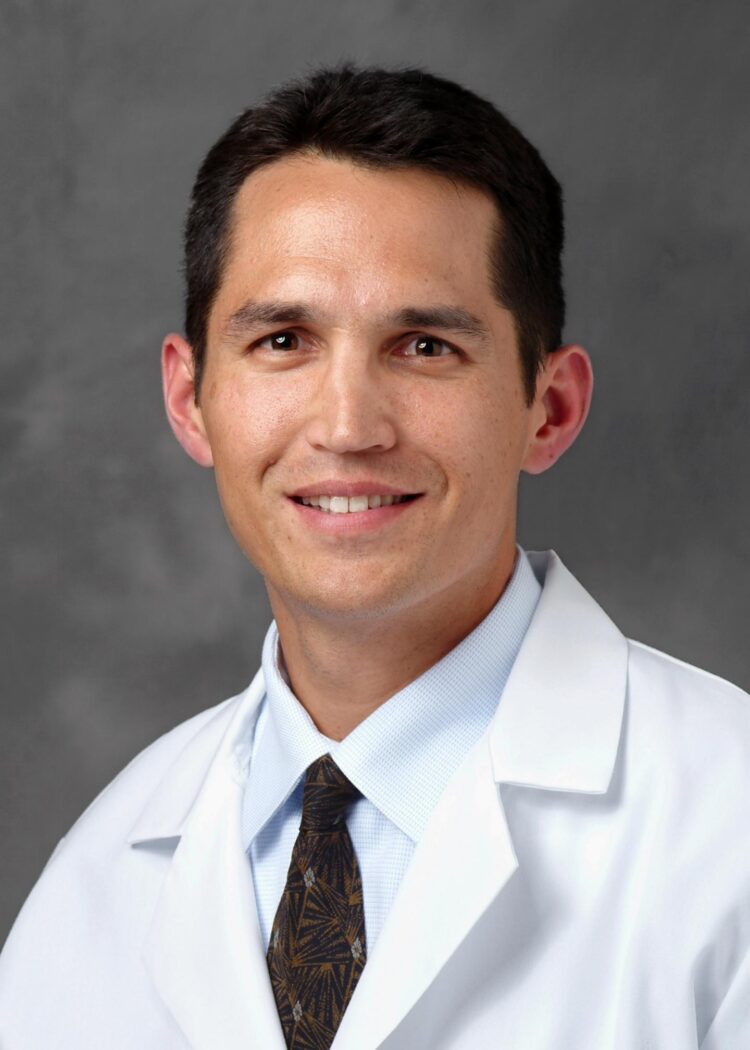Henry Ford Health System-led study shows how inclusivity benefits genetic research.

Credit: Henry Ford Health System
DETROIT (February 25, 2021) – Researchers at Henry Ford Health System, as part of a national asthma collaborative, have identified a gene variant associated with childhood asthma that underscores the importance of including diverse patient populations in research studies.
The study is published in the print version of the American Journal of Respiratory and Critical Care Medicine.
For 14 years researchers have known that a casual variant for early onset asthma resides on chromosome 17, which holds one of the most highly replicated and significant genetic associations with asthma. Henry Ford researchers acknowledged they would not have identified it in this study without a diverse patient population that included African Americans, many from the metro Detroit area.
“This study is one of the best examples that demonstrates diversity matters in genetic research,” said L. Keoki Williams, M.D., MPH, the study’s senior author and co-Director of Henry Ford’s Center for Individualized and Genomic Medicine Research. “African Americans have greater variation in their genome due to their African ancestry and this allowed us to pin-point a variant on chromosome 17 which has eluded asthma researchers for over a decade.”
In an accompanying editorial written by researchers at the Harvard Medical School, the authors wrote that divergent genealogical histories can facilitate gene discovery. “In a time when our society is attempting to confront the ills of racial discrimination, including the ongoing racial disparities in healthcare, it is imperative that future studies are more inclusive to ensure that all peoples benefit equally in the post-genome era.”
According to the National Center for Health Statistics, more than 41 million Americans had asthma in 2019, of which 18.5% were children less than 18 years of age. As a group, African Americans have some of the highest rates of asthma in the U.S. – 17.6% vs. 9.3% for African American children and non-Hispanic white children, respectively, and 15.2% vs. 13.8% for African American adults and non-Hispanic white adults, respectively.
The Henry Ford-led study was conducted in collaboration with researchers Esteban Burchard, M.D., MPH, at the University of California San Francisco (UCSF) and Hakon Hakonarson, M.D., Ph.D., at the Children’s Hospital of Philadelphia (CHOP). It was part of the Asthma Translational Genomics Collaborative and the National Heart Lung and Blood Institute’s Trans-Omics for Precision Medicine (TOPMed) program, a nationwide effort to use cutting-edge genetic technologies to better understand common, yet complex, diseases.
The study is believed to be the largest to date using whole genome sequencing for asthma research. It included 5,630 African American participants with and without asthma from the Henry Ford, UCSF and CHOP cohorts. Participants from Henry Ford were part of the Study of Asthma Phenotypes and Pharmacogenomic Interactions by Race-Ethnicity, or SAPPHIRE.
“African Americans have been represented in less than 3% of these types of studies, yet make up 13% of the U.S. population,” said Hongsheng Gui, Ph.D., a Henry Ford researcher and study co-author. “Another reason to have diverse study populations is that many of the genetic risk markers found in one population group don’t replicate in other population groups. However, the variant that we found appears to confer the same magnitude of asthma risk in both African Americans and non-Hispanic white Americans.”
The variant that was identified resides in a gene called gasdermin-B, abbreviated GSDMB. Researchers found that the “protective” variant caused alternative splicing or editing of the final gene, resulting in a messenger RNA sequence missing exons 6 and 7. Researchers believe that this finding will help focus efforts to understand how this particular gene affects a child’s risk of developing asthma.
###
The study was funded by grants from the National Heart Lung and Blood Institute, the National Institute of Allergy and Infectious Diseases, and the American Asthma Foundation.
About Henry Ford Health System
Founded in 1915 by Henry Ford himself, Henry Ford Health System is a non-profit, integrated health system committed to improving people’s lives through excellence in the science and art of healthcare and healing. Henry Ford Health System includes Henry Ford Medical Group, with more than 1,900 physicians and researchers practicing in more than 50 specialties at locations throughout Southeast and Central Michigan. Acute care hospitals include Henry Ford Hospital in Detroit, MI and Henry Ford Allegiance Health in Jackson, MI – both Magnet® hospitals; Henry Ford Macomb Hospital; Henry Ford West Bloomfield Hospital; and Henry Ford Wyandotte Hospital.
The largest of these is Henry Ford Hospital in Detroit, a quaternary care research and teaching hospital and Level 1 Trauma Center recognized for clinical excellence in cardiology, cardiovascular surgery, neurology, neurosurgery, and multi-organ transplants. The health system also provides comprehensive, best-in-class care for cancer at the Brigitte Harris Cancer Pavilion, and orthopedics and sports medicine at the William Clay Ford Center for Athletic Medicine – both in Detroit.
As one of the nation’s leading academic medical centers, Henry Ford Health System annually trains more than 3,000 medical students, residents, and fellows in more than 50 accredited programs, and has trained nearly 40% of the state’s physicians. Our dedication to education and research is supported by nearly $100 million in annual grants from the National Institutes of Health and other public and private foundations.
Henry Ford’s not-for-profit health plan, Health Alliance Plan (HAP), provides health coverage for more than 540,000 people.
Henry Ford Health System employs more than 33,000 people, including more than 1,600 physicians, more than 6,600 nurses and 5,000 allied health professionals.
NEWS MEDIA ONLY may contact:
David Olejarz / [email protected] / 313-303-0606
Media Contact
David Olejarz
[email protected]
Original Source
https:/





